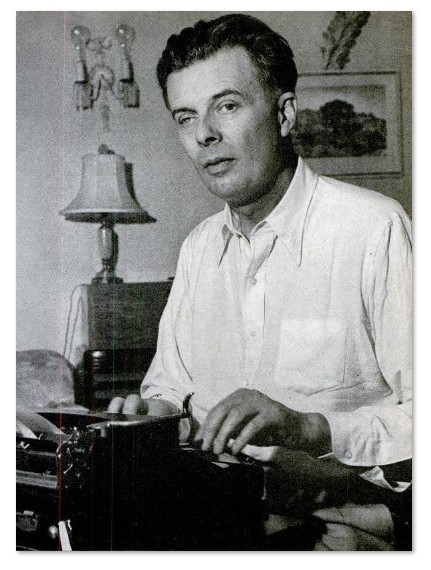Some great news! Surveys show that there’s been a significant growth in interest in Christianity over the last few years, worldwide. In the UK, for instance, Bible sales doubled in the six years to 2024 and church attendance grew by half.* Interestingly, the biggest growth appears to be among young adults.
Various reasons for this trend have been proposed. One suggestion is that people are searching for community and a sense of belonging—the pandemic years imposed damaging isolation upon us, and seeking community on social media has proved hollow and unfulfilling. Another suggestion is simply that the world is an increasingly frightening place—economic, social and political uncertainty are making people crave comfort, security and spiritual connection, and a logical place to look for these things is in the Christian faith, which has been the bedrock of many societies for many centuries.
The Philosophy of Meaninglessness
Another suggestion is disillusionment with the alternatives. In the western world, atheism has been in the ascendancy for a long while. In the 19th Century, scientists and philosophers such as Charles Darwin and Karl Marx made atheism respectable and mainstream. In the 20th Century, social upheavals (especially following the world wars) enabled the abandonment of traditional standards of morality. People were able to turn away from the Christian-based culture that had prevailed throughout most of the western world for many generations, shake off its restrictions, and explore their lives for themselves, on their own terms.
In his essay Confessions of a Professed Atheist, the writer Aldous Huxley admitted: “I had motives for not wanting the world to have meaning… the philosophy of meaningless-ness was essentially an instrument of liberation.”
Another century on, we’re in a position to look back on the course this liberation has taken. Increasingly, people are admitting that humanity has not progressed in the way that was expected. Technology has advanced at a bewildering rate, but we are not happier, more fulfilled or more enlightened than our ancestors, and the fabric of our society is unravelling. For many, the “philosophy of meaninglessness” has turned out to be a philosophy of miserable emptiness.
The Alternative
In contrast, the Bible offers a world view which is emotionally and intellectually satisfying, and it provides healthy rules and guidance for a fulfilling life.
It begins with God—the Creator (Genesis 1:1). We can gaze with awe at this wonderful universe. The more we discover about it, the more miraculous it seems. And we don’t have to assure ourselves that somehow it just happened—we can accept that it is the work of an inconceivably vast mind with infinite power.
It is focussed on love (John 3:16). The enormity of the love of God, Who gave His Son Jesus Christ to die so that we might have life—and the love of Jesus Christ, who willingly sacrificed himself, is a theme which the Bible explores in detail and which will repay a lifetime of meditation.
It prescribes clear, unambiguous stan-dards of morality and behaviour, and it explains the reasons (Ephesians 5:1–5). Being the instructions of our maker, we have confidence that they provide the best way to enjoy the life He has given us.
It provides community (Ephesians 2:19–22). To be a true Christian is to be a child of God, a brother or sister of the Lord Jesus Christ, and a member of a worldwide family.
It provides confidence that through all of life’s troubles, God is on your side (Romans 8:31–35).
And it provides a real hope and confidence for the future—not just for this life, but for eternity (John 6:40).
Coming to the Light
Human nature does not readily seek God—there’s that rebellious streak in all of us that makes us want to go our own way. Huxley, with admirable honesty, admitted that his atheism was primarily an “instrument of liberation”. The Bible puts it another way: ‘This is the judgment: the light has come into the world, and people loved the darkness rather than the light because their works were evil’ (John 3:19).
There’s a lot of darkness in this world. It’s encouraging to know that increasing numbers of people are recognising this, and turning towards the light.
* The Quiet Revival, report by The Bible Society, April 2025.




